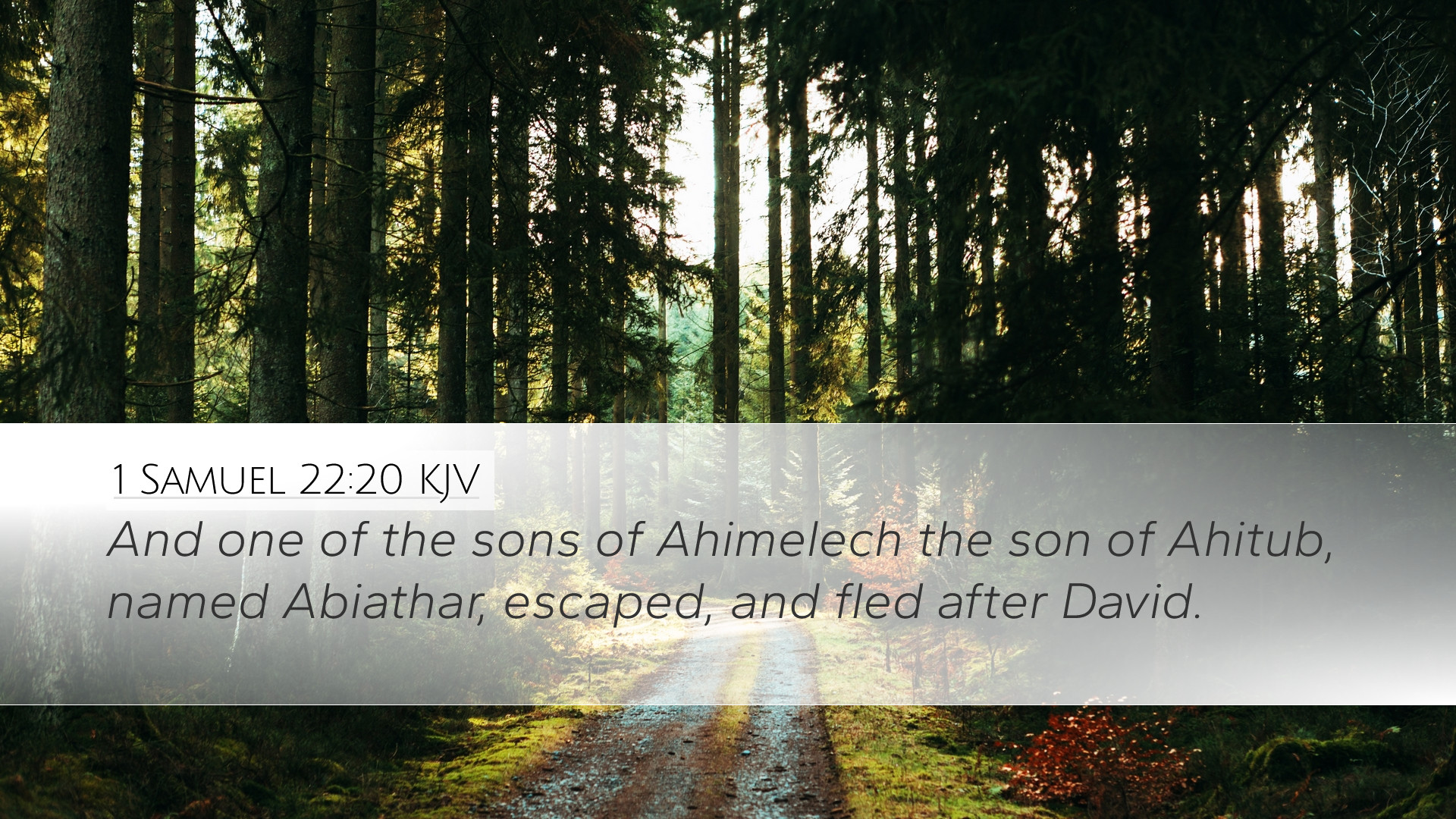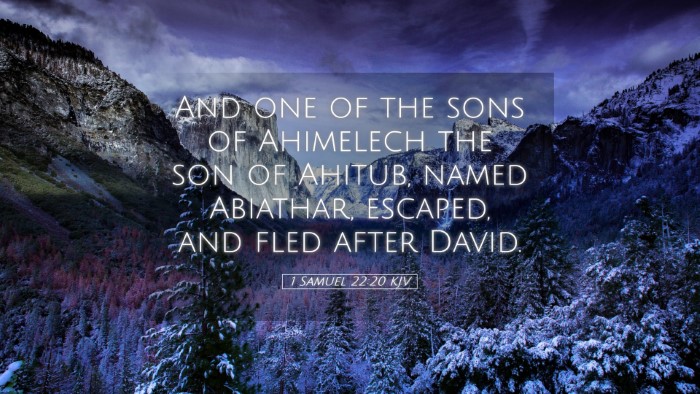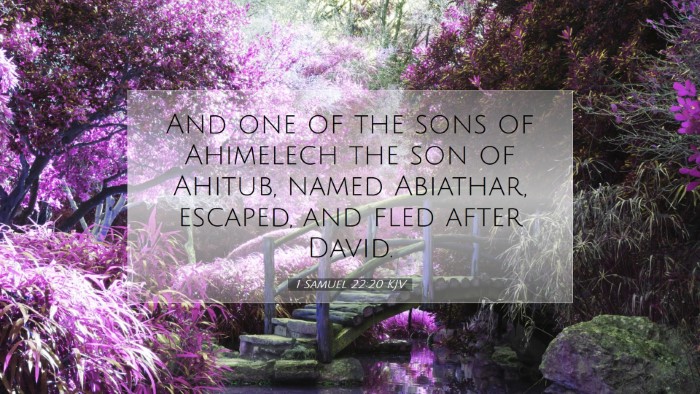Bible Commentary on 1 Samuel 22:20
Verse Context: 1 Samuel 22:20 states, "But one of the sons of Ahimelech the son of Ahitub, named Abiathar, escaped, and fled after David." This verse occurs in the narrative following the tragic massacre at Nob, where Saul ordered the execution of the priests, resulting in the death of Ahimelech and his companions. Abiathar's escape introduces a significant character who plays a crucial role in David's reign.
Summary of Insights from Public Domain Commentaries
Matthew Henry's Commentary:
Henry highlights the providential escape of Abiathar, emphasizing God’s mercy even in dire circumstances. The narrative underlines how, despite the severe brutality enacted by King Saul, God's purposes cannot be thwarted. Abiathar, as the last priest of Nob, symbolizes hope and continuity of worship amidst chaos. His flight to David signifies the transition of divine favor from Saul to David. The fact that he is a survivor among many slain priests serves as a reminder of God's faithfulness to preserve a remnant.
Albert Barnes' Notes:
Barnes elaborates on the importance of Abiathar as a character in the unfolding drama of David's life. His escape signifies the beginning of a significant alliance between David and the priesthood, which later plays a crucial role in David’s legitimacy as king. The mention of Abiathar's lineage serves to remind readers of the Levitical heritage that carries implications for the sacrificial system and the continuity of worship in Israel. Barnes notes that Abiathar not only brings news but also the priestly ephod, symbolizing an ongoing connection to the Lord's guidance through the priestly ministry.
Adam Clarke’s Commentary:
Clarke reflects on the character of Abiathar further, discussing the spiritual implications of his flight to David. He interprets Abiathar’s arrival as a divine appointment, suggesting that God allows certain key figures to escape persecution for the purpose of fulfilling His greater plan. Clarke also points to the nature of loyalty, as Abiathar chooses to align with David, setting the stage for his role as a priest during David's reign. The emotional and spiritual weight of this decision is significant, illustrating the tension between allegiance to Saul and fidelity to God's anointed monarch.
Key Themes and Reflections
- Divine Preservation: The escape of Abiathar highlights God's ability to preserve His people even amidst significant trials.
- Symbol of Hope: Abiathar emerges as a beacon of hope for those faithful to God’s covenant, indicating that God retains a strategy and purpose for His servants.
- Alliance of Leadership: The partnership between Abiathar and David signifies a shift in divine guidance and authority, which will be critical to the nation of Israel.
- Spiritual Significance of the Priesthood: Abiathar’s role underscores the importance of the priesthood in guiding and maintaining covenant community, illustrating the vital connection between the king and the priestly office.
Application for Modern Readers
This verse and its commentary resonate profoundly with both leaders and believers today. The harsh realities of conflict, loyalty, and the struggle for divine favor present in this historical narrative encourages introspection regarding our own allegiances. Just as Abiathar fled to David, modern readers are called to flee to Christ, the ultimate high priest, for refuge and guidance in times of distress.
Moreover, the commentaries prompt reflection on the roles we assume in our communities. Are we acting as voices of hope, preserving the worship of God amidst chaos? Just as Abiathar contributed to David's rise through his priestly support, so too can we contribute to the spiritual infrastructure of our communities through our commitments and actions.
Conclusion
In conclusion, 1 Samuel 22:20 illuminates deep theological truths about the intersection of divine sovereignty, human choice, and the continuity of God's plan through His people. The insights gained from historic commentaries remind us of the timeless nature of scripture and its applicability to our lives today. As pastors, students, theologians, and scholars, engaging with these narratives enriches our understanding of God’s faithfulness and challenges us to embody the loyalty and faith displayed by Abiathar amid adversity.


